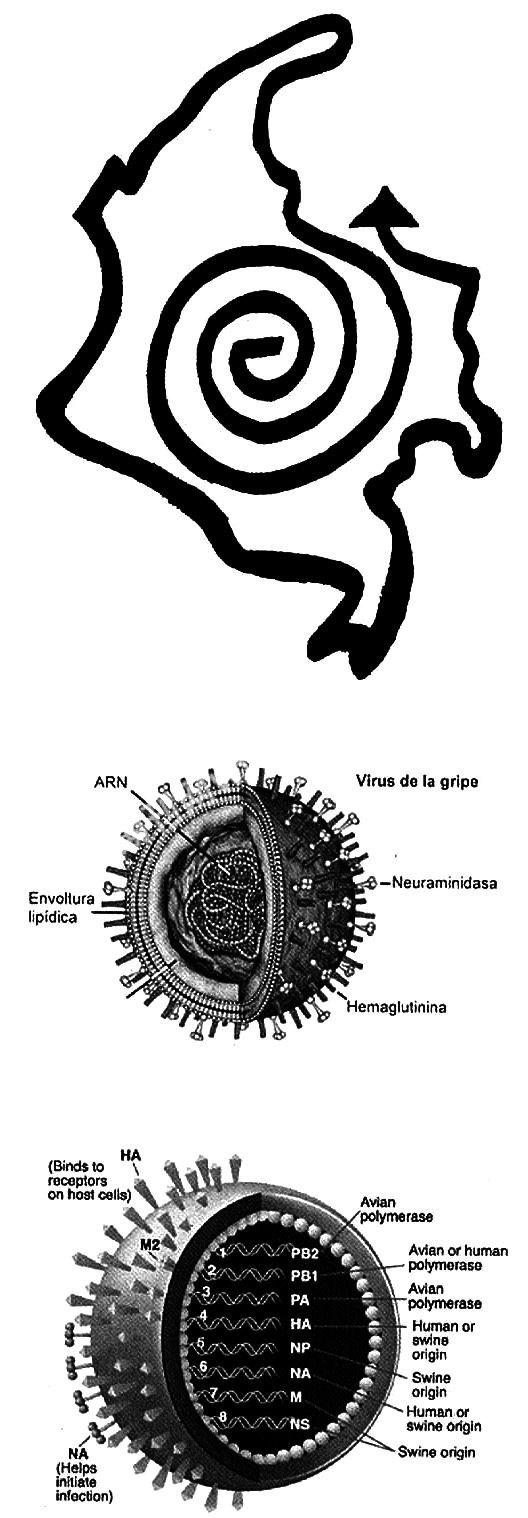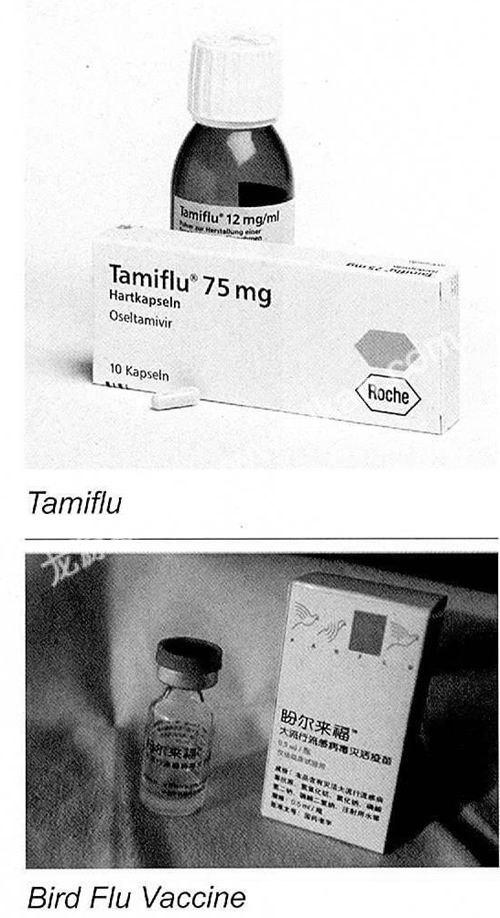“Swine Flu”Flourishes Drug Firms
2009-09-30
A-N1H1 flu indeed brings about great damage to the society. However, such a crisis is an unprecedented opportunity for the drug enterprises.
The disease causing so many peoples concerns was previously called “swine flu”. After a while, it has been proved that it has no connection with pigs. So its official name was changed into “A-N1H1 flu”. Though different in names, this disease has become a hot topic since its first appearance. When China for the first time has to face this virus, it has been not only a topic. The drug enterprises, for example, take actions, both for their benefits and the health of Chinese people.

On May 11, the first A-N1H1 case was confirmed in Sichuan, raising worries of all the people in this country. The drug enterprises, especially those producing anti-flu drugs, see business opportunities in this crisis.
According to the report from National Business Daily, the production of anti-virus drug Tamiflu, also called Oseltamivir phosphate, has already been resumed. The Radix Isatis is also well sold in many places of China. In addition, those enterprises producing flu vaccine also prepare well for the possible huge supply in the market.
Production of Tamiflu Has Been Resumed
“Though the research has begun, the specific medicine for A-N1H1 flu is not available in the world. The research and development of a new flu vaccine usually costs five to six months,” said Li Dexin, Director of Institute for Viral Disease Control and Prevention, Chinese Center for Disease Control and Prevention (CCDCP). “Presently, the World Health Organization (WHO) has advised using Tamiflu capsule produced by the Switzerland-based Roche Pharmaceutical Corporation and Relenza produced by the Britain-based GlaxoSmithKline Corporation.
On the afternoon of May 11, the CCDCP published the Program of Preventing and Treating A-N1H1 Flu (First Trial Edition 2009) which pointed out that the anti-virus drugs should be used for the infected persons as quickly as possible. The drug sensitive test shows that the A-N1H1 virus is sensitive to Oseltamivir and Zanamivir.

It is known that Relenza is not available in China. Fortuantely, Roche has already approved two drug enterprises in China – Shanghai Pharma and the Shenzhen-based HEC Group Co. - to produce Tamiflu.
Soon after the fist A-N1H1 case was confirmed, Yin Qinxie, Director of Propaganda Departmnet, Shanghai Pharma said: “We have already resumed the production. We are speeding up our production so we can provide Oseltamivir for 200 thousand people every month.”
According to Yin, Shanghai Pharma got the approval to produce Tamiflu from Roche in 2006. All its products are purchased by the government in order to deal with the bird flu. After the bird flu calmed down, the governments of different places stopped purchasing Tamiflu and Shanghai Pharma also halted the production. Yin said that Shanghai Pharma, according to the directions of the government, established a group for guaranteeing the supply of anti-A-N1H1 flu drugs on May 2. During the holiday, Shanghai Pharma emergently launched the planning about resuming the production. The employees worked overtime to purchase the raw materials and test equipments. “We can guarantee the drug supply despite emergent case.”
Mr. Li, a director of HEC Group Co., said that the company has already resumed the production of Tamiflu. “The government told us to prepare the raw materials even before the Labor Day. By now (May 12), we have already received many orders.”
According to the information from the CCDCP, the departments of disease control and prevention in different places held meetings to discuss about the purchasing of Tamiflu. “The collective purchasing from the governments will happen soon,” said Yin.
Radix Isatis Is Well Sold
When Chinas first A-N1H1 case was confirmed, the drugs for prevention suddenly became popular among people.
In a Beijing-based drug store, Radix Isatis capsules are the most sold drug. The workers in the store said: “When news of the flu came out in middle April, our stores Radix Isatis is off sale. It is the same to many other stores in Beijing.”
Two Guangdong-based drug enterprises also said their Radix Isatis is off sale. According to their directors, the workers of the two companies have already cancelled their holidays and worked overtime to produce Radix Isatis. “According to the experience of dealing with SARS and bird flu, we will multiply increase the number of Chinese medicine products when a case is confirmed,” said one of the directors.
However, when the news of confirmed case came out on May 11, the two companies said: “We have been producing Radix Isatis for a dozen of days without any stop. But the supply still can not meet the demand of the market.”
“Compared with the western medicine, the Radix Isatis has better effect in prevention. And the Chinese medicines prices are lower, which is more easily accepted by the market. Tamiflu is very expensive and its main function is to cure the disease,” said the director mentioned above. According to him, his company has already received orders from Mexico and Canada.
Vaccine Is Under Preparation
“No matter whether the A-N1H1 flu can be controlled or not in the future, we must attach great importance to the research and development of vaccine against it,” said Dong Xiaoping, Technological Department of Chinese Center for Disease Control (CDC). “In 2004, when the bird flu broke out, our department started the program of researching and developing the vaccine. After several years hard work, we have already got mature technology to produce the vaccines against the H5N5 bird flu virus. After getting the strain of A-N1H1 virus from the WHO, we can immediately start the research and development of vaccine.”
According to some analysts, China has already discovered people infected by the A-N1H1 virus and it has been proven that pigs can also be infected by this disease from human beings. The Ministry of Agriculture may also list the A-N1H1 flu into the list of the disease that can damage livestock raising industry. Therefore, the corresponding vaccine for livestock must be prepared. The companies with the qualification to produce the flu vaccine for livestock, like China Animal Husbandry Industry Co., Ltd (CAHIC) and Inner Mongolia Jinyu Group Stock Company (Jinyu Group), can gain a lot of benefits.
It is known that CAHIC is the largest manufacturer of vaccine for livestock in China. Its products take 30% market share of the country. Its specific vaccines even take 40% of the market share of China. Jinyu Group, though less strong than CAHIC, still got the qualification from the Ministry of Agriculture to produce vaccine against H5N5 bird flu virus. If the Ministry of Agriculture starts to develop the vaccines against the A-N1H1 virus for the livestock, both enterprises can be benefited a lot.
The expected benefit can be seen in the stock exchange market. On May 11, the stocks concerning the fight against A-N1H1 virus all saw great increase.
